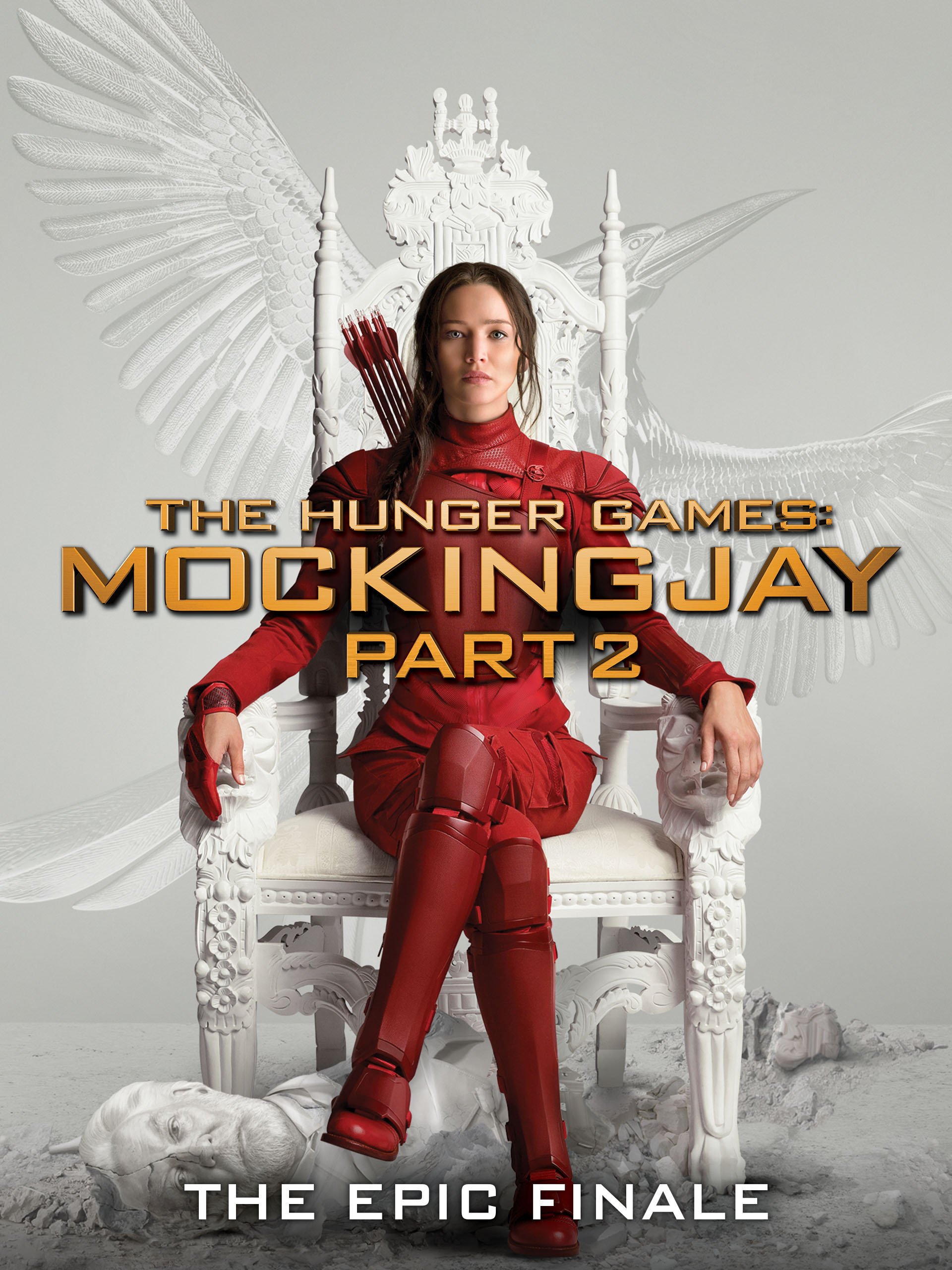Film adaptation (and Jennifer Lawrence) give The Hunger Games trilogy the fitting conclusion that the novels never had.
I read Suzanne Collins' The Hunger Games trilogy quite some time ago and greatly enjoyed the first installment as well as the second, Catching Fire. Unfortunately, the third novel in the series, Mockingjay was an absolute disaster. It was a brutal slog of a read that intermixed uninteresting slow stretches with action that took place too quickly for it to truly resonate. The story that Collins chose to tell was admittedly a tough one to convey via text, and the extreme action of a war zone found in many chapters of the story was always better suited for the big screen than paper. Still, one can't help but feel that a superior author (e.g. Martin, Tolkien, Rowling) would have done a better job with the difficult wrap-up of such an enthralling series. Collins fell short, but thankfully, Jennifer Lawrence and a good cast of actors did not.
I can't say I'm particularly surprised by that result because I enjoyed the first three films in the series probably equally as much as the accompanying novels. It's a story that lends itself well to film, for sure, but I think that a common reaction to movies based off of literary works is, "Well, the book was better." I never once got that sense in The Hunger Games trilogy. The movies managed to do the books justice, and in the case of Mockingjay (particularly Part 2), the film version exceeded expectations.
Of course, one thing that Mockingjay the movie had going for it that Mockingjay the novel did not is Jennifer Lawrence. She did such a great job of conveying the horrors and emotional trauma of war through her face and I can't say enough about her performance. From an entertainment perspective, Lawrence was able to keep me sucked in despite a plot built with obviously problematic elements. "Oh, hey Prim, guess you're randomly here in this war zone with us and.......now you're dead. Good seeing you for three seconds, I guess. That death was totally fitting for four installments' worth of character building."
Unlike Prim's death, the movie handled Finnick Odair's demise far, far better than the novel. The book versions of Catching Fire and Mockingjay did a great job of establishing Finnick as an unexpectedly sympathetic character, and he quickly became a favorite of mine while reading. Unfortunately, the novel Mockingjay wrote him off quickly as a death at the hands of the mutts, much the same as it did a few other nondescript characters in effectively the same scene. I always thought he deserved better. By contrast, the movie was able to paint Finnick as a hero, bravely fighting off monstrosities and even saving Katniss' life before he's dragged to his death. Rather similar to Cato's death in the first movie, Katniss kills Finnick (and the mutts) with an explosive, though this time it's out of love rather than mercy.
Admittedly, a lot of the details of the book escaped me over the course of these past five years (it was bad, remember!), but one scene that I was anxiously awaiting was Katniss' decision to kill Coin instead of President Snow at Snow's execution. The movie set this up very well, and you could even see a knowing grin on Snow's face (Donald Sutherland was consistently awesome throughout the four movies) before Katniss physically changed targets.
The conclusion of the story, involving Katniss' choice to remain with Peeta over Gale, made much more sense in the movie. The audience could see Peeta's slow return to normalcy over the course of the film and Katniss' growing distrust of Gale's methods and attitudes towards war and its victims. The ending of the Mockingjay novel was pretty confusing (to be fair, it's possible and even likely Collins intended to get the same effect as the film did, but she didn't, because the book was bad!) and felt pretty rushed after the action-packed scenes that preceded it. The ending of the movie felt far, far more natural and satisfying.
In the epilogue, we see Katniss and Peeta relaxing in a peaceful meadow with their two children. In the first installment, Katniss insisted that she was never having kids, and it's implicit that the reason why is that she would never want to bring new life into the horrors of the world in which she lives. That she ultimately chose to have children is indicative that she approves of the new order established in Panem and that the world has become a better place as a result of her choice to assassinate a potential tyrant in Coin. It's as happy an ending as the trilogy could've had, I guess.
Mockingjay Part 2 suffers a bit from alternating dullness and rushes of action, but it was just going off of the source material, so it's hard to fault it all that much. It has plenty of excitement, feeling, and some nice character work (though I would've liked more Haymitch, because Haymitch is great). It feels like a genuine horror movie when the squad is trekking through the sewer-like tunnels and has no shortage of touching moments between a cast of characters that are developed well for their limited screen time. It's far from a perfect movie, or even a great one, but it's a good, entertaining conclusion to a series that really deserves one.

No comments:
Post a Comment